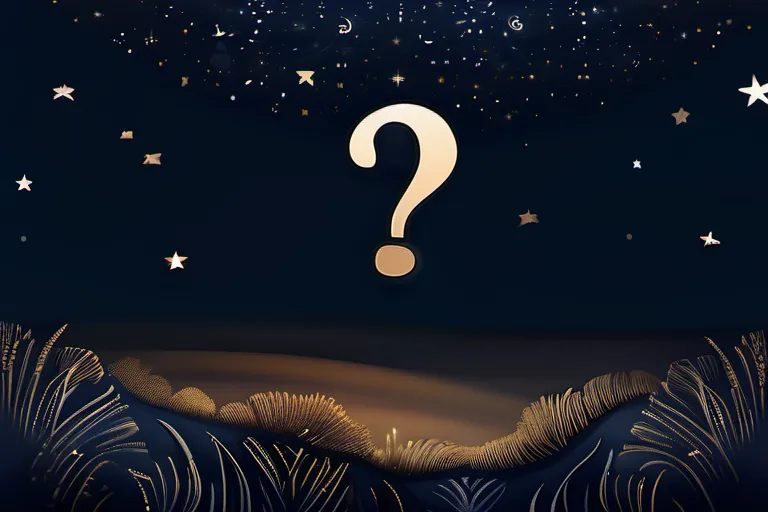Exploring the beliefs, challenges, and social dynamics of atheism
This article delves into the complexities of atheism, providing a detailed exploration of its various aspects. From defining atheism to understanding its historical context, this guide offers valuable insights for anyone interested in learning more about this perspective.
The Definition and History of Atheism
The term ‘atheism’ often conjures up images of grand philosophical debates, but its history and definition are far more intricate and multifaceted than that. Have you ever wondered about the origins of atheism? Was it always as clearly defined as it is today?
Atheism has evolved over millennia, shifting with societies and cultures. Some might argue that skepticism towards gods was present even in ancient civilizations, but when did it become a coherent belief system? Was the Enlightenment the dawn of modern atheism, or were there earlier seeds of thought sown by philosophers like Lucretius and Epicurus?
One key distinction to understand is how atheism differs from agnosticism. While atheism asserts that there is no evidence for the existence of a deity, agnosticism simply states that the question of God’s existence cannot be answered. This subtle difference can lead to misunderstandings between those who identify as either atheist or agnostic.
Throughout history, atheism has faced significant challenges and social dynamics. In many societies, disbelief in gods has been met with persecution, from ancient Greece’s fear of atheism leading to accusations of impiety, to the more recent waves of religious fundamentalism that have persecuted non-believers.
Understanding these historical contexts is crucial for grasping the current landscape of atheism. As societies become more secular and diverse, how do we navigate the complex interplay between faith and reason? And what role does atheism play in today’s world?
The journey from ancient philosophical inquiries to modern belief systems has been a long one. Each era brings new challenges and opportunities for those who identify as atheists. Exploring this history helps us appreciate how deeply rooted atheism is in human thought, and why it continues to be a significant force in contemporary society.
Atheism in Modern Society
Athiesm, in modern society, often serves as a beacon of rationality and skepticism amidst a sea of religious beliefs. But what exactly does it mean to be an atheist today? Are we just a collection of non-believers or is there more to our experience than meets the eye?
Let’s delve into the social dynamics surrounding atheism. How do people perceive us, and how have these perceptions evolved over time? The term ‘atheist’ can bring up strong reactions; some see it as a challenge to their own beliefs, while others view it with curiosity or even respect. But what about those who are labeled as atheists? Do we feel marginalized, misunderstood, or simply free from the constraints of organized religion?
The role of organized religion in society cannot be overlooked. Many atheists find themselves caught between the two extremes: embracing a secular worldview and dealing with societal pressures that often favor religious values. It’s like navigating through a maze where every turn has its own set of challenges—standing up for personal beliefs, finding community support, or simply existing without the constant influence of organized religion.
Attitudes towards atheists are as varied as the individuals who identify this way. Some find themselves celebrated for their critical thinking and open-mindedness, while others might encounter hostility or indifference. The journey from the shadows to acceptance is not a linear path; it’s more like walking through a foggy forest where every step can lead in different directions.
In conclusion, understanding atheism in modern society means grasping its complexity. It’s about navigating personal beliefs, societal pressures, and the intricate social dynamics that shape our lives. Are you ready to explore this journey with us? Let’s embark on this exploration together, questioning everything along the way.
The Philosophical Foundations of Atheism
Understanding the philosophical foundations of atheism involves diving into the core arguments that shape this worldview. Have you ever pondered the existence of a higher power, wondering if there is something greater than ourselves? Many atheists turn to philosophical reasoning to explore these questions.
One of the most prominent arguments against the existence of a higher power is the Premiss of Non-Contradiction. This principle states that contradictory statements cannot both be true in the same sense and at the same time. If we accept this, can we logically reconcile the concept of an omnipotent being with the suffering and imperfections seen in the world? It’s like trying to fit a round peg into a square hole; it just doesn’t work.
Another crucial argument is the Kalam Cosmological Argument, which posits that everything that begins to exist has a cause, and the universe began to exist. Therefore, there must be a first cause or creator. However, many atheists argue that the concept of an uncaused cause is self-contradictory or unnecessary. It’s akin to asking what came before the Big Bang; if it’s infinite regress, why not accept the universe as it is without invoking a supernatural entity?
The Argument from Evil is another powerful critique often cited by atheists. If an omnipotent and benevolent being exists, how can we explain the existence of evil and suffering in the world? This argument challenges us to question if such a deity truly cares about the well-being of its creations or if it even exists at all. It’s like arguing that a perfectly designed watch must have been made by someone who knows about mechanics; yet, when faced with a natural disaster causing suffering, we wonder about the designer’s motives.
The Euthyphro Dilemma further complicates matters by asking whether something is good because God commands it, or does God command it because it is good? This paradox forces us to consider if moral values are derived from divine will or independent of it. Many atheists find comfort in the idea that morality can exist without a deity’s influence, grounded instead in human reason and experience.
These arguments, while complex and multifaceted, offer profound insights into why many choose atheism as their philosophical stance. They challenge us to question our assumptions about the nature of reality and our place within it. As we delve deeper into these debates, one thing becomes clear: understanding atheism requires grappling with some of life’s most fundamental questions.
Atheism and Morality
Athletes often speak about the game without God, but what about the rules of the game? How do atheists navigate the complex landscape of morality and ethics in their daily lives? The answer lies in understanding that morality for atheists is not just a set of guidelines handed down from above, but a dynamic interplay of human values, reasoning, and societal norms.
Imagine morality as a vast ocean. For many religions, this ocean is charted by divine commandments, like following the contours of a map. But for atheists, it’s more like navigating uncharted waters with only the stars to guide you. They rely on reason, empathy, and rational deliberation to plot their course.
One might wonder, how do they address questions about right and wrong without a religious framework? For many atheists, morality arises from shared human experiences and societal contracts that benefit everyone involved. It’s akin to building a community where everyone plays by the same rules, ensuring fairness and cooperation—much like setting up an intricate game of chess.
Take the concept of utilitarianism, for example. This ethical theory suggests that actions are right if they promote happiness or well-being for the greatest number of people. It’s a way to measure outcomes, much like weighing scales, where the aim is to tip the balance towards greater good.
Another important aspect is cultural relativism. Atheists often recognize that what is considered morally acceptable can vary greatly from one culture to another. This perspective encourages them to engage in respectful dialogue and mutual understanding, recognizing that moral values are not absolute but can evolve over time.
In essence, the role of morality in atheist communities is a reflection of human ingenuity and collective wisdom. It’s about creating a social fabric that binds us together through shared principles and practices. While it may seem like walking a tightrope without safety nets, this journey allows for growth, innovation, and a deep sense of fulfillment that comes from making the world a better place on our own terms.
The Challenges Faced by Atheists
Imagine walking down the street, feeling like you’re the only one without a religious umbrella to shield you from the storms of societal pressure and discrimination. For many atheists, this is not just a metaphor but a reality they navigate every day. How do they deal with the social stigma that often accompanies their beliefs? And what challenges do they face when it comes to finding meaning in life without a divine purpose?
One of the most common challenges atheists face is dealing with social stigma. It’s like being part of a group where everyone else wears a colorful badge, and you’re left with just your own thoughts. This can lead to feelings of isolation and anxiety about how others perceive you. How do they handle this? Do they keep their beliefs hidden or share them openly, risking judgment and prejudice?
Another significant challenge is discrimination. From subtle microaggressions to outright hostility, atheists may encounter situations where their beliefs are used against them. For instance, in the workplace, religious holidays might be celebrated while atheist contributions go unnoticed. Is it fair? Do they have the right to expect equal treatment and respect?
Moreover, the search for meaning can be a deeply personal journey. Without a traditional religious framework, many atheists find themselves questioning their place in an often indifferent universe. How do they find purpose and build a fulfilling life when the concept of a divine plan is absent? Many turn to science, philosophy, or humanist communities for answers, but these too come with their own set of challenges and questions.
Ultimately, understanding the challenges faced by atheists means recognizing the complexity of their experiences. It’s about more than just beliefs; it’s about navigating life’s tough questions in a world that often seems to be designed around different values and priorities. How do they forge ahead, finding strength in their convictions while still seeking connection and community? The answers lie in the resilience and adaptability of individuals who refuse to let societal pressures define them.
Atheism and Personal Identity
Atheism, like any significant belief system, deeply impacts personal identity. How does one navigate their atheist experience in a world predominantly shaped by religion? It’s like walking through a forest where every path is lined with trees that whisper stories of gods and miracles, while you’re more interested in the intricate patterns of nature around you. This journey of self-discovery isn’t always smooth; it often involves questioning deeply held beliefs, sometimes even from family and friends who hold strong religious views.
Understanding how atheism shapes personal identity requires diving into the complex interplay between individual beliefs and societal norms. Imagine building a house where every wall is constructed with blocks of thought—some heavy, others light—and each one represents a belief or value. For many atheists, this house needs to be built on a foundation of rationality and evidence, rather than faith. This process can be both exhilarating and challenging.
Consider the daily struggles faced by those who identify as atheist. It’s like swimming against the tide in some communities where religious practices are deeply ingrained. Yet, many find their strength in the community of atheists, a supportive network that helps them navigate these challenges. This community provides a sense of belonging and understanding that can be incredibly powerful.
The personal identity of an atheist is also shaped by how they cope with the lack of a spiritual or religious framework for meaning. It’s like trying to find a map in a vast, uncharted territory—sometimes you have to create your own landmarks. Many atheists turn to science, philosophy, and humanism as guides, finding comfort and purpose in understanding the natural world around them.
Ultimately, understanding how atheism shapes personal identity means recognizing that it’s not just about what one does or doesn’t believe, but also about the unique perspective and worldview that emerges from that belief. It’s a journey of self-definition and self-acceptance, where every step is carefully considered and every decision reflects a commitment to rationality and evidence-based living.
Conclusion
 By the end of this article, readers will have gained a deeper understanding of what it means to be an atheist and the unique challenges they face. This knowledge can foster empathy and promote open-minded dialogue between people of different beliefs.
By the end of this article, readers will have gained a deeper understanding of what it means to be an atheist and the unique challenges they face. This knowledge can foster empathy and promote open-minded dialogue between people of different beliefs.











